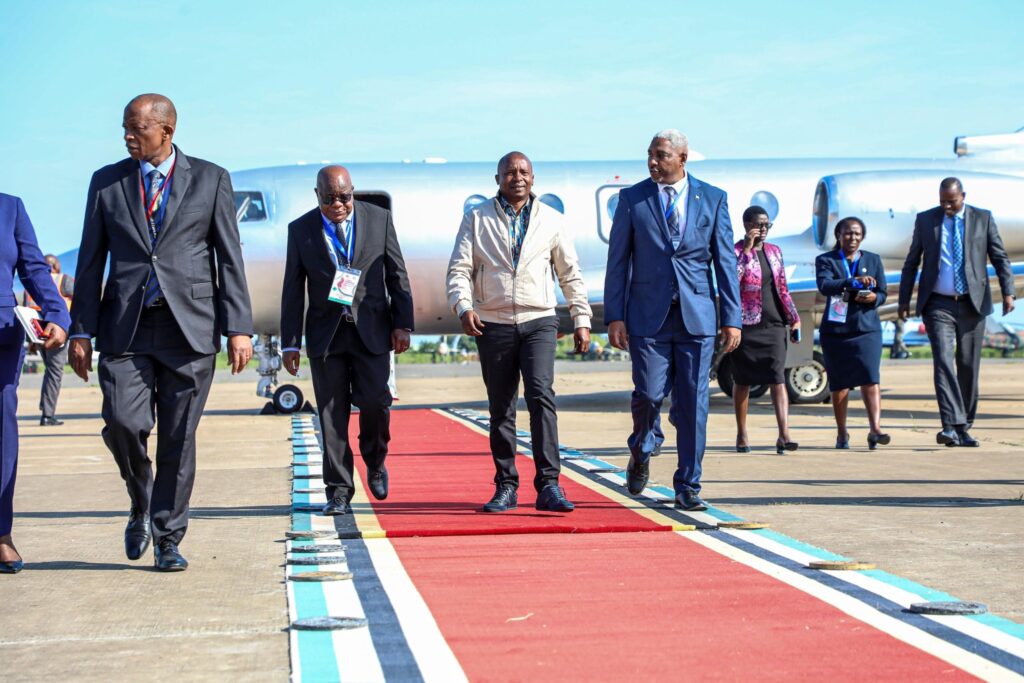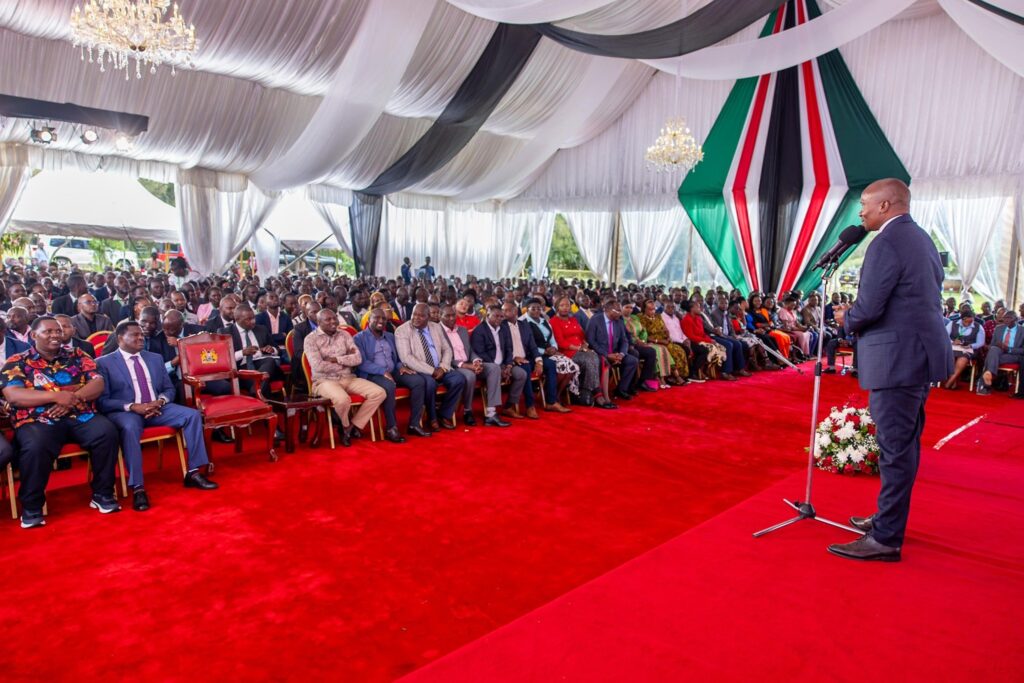
Reshaping the DP’s Office and Bolstering Ruto’s 2027 Bid? » Capital News
NAIROBI, Kenya, Feb 8 – When Deputy President Kithure Kindiki took office as Kenya’s third Deputy President, President William Ruto saw a fresh start.
For two years, Ruto had governed amid tensions with his impeached predecessor, Rigathi Gachagua, whose tenure was marked by internal power struggles. During Kindiki’s swearing-in on November 1, 2024, Ruto made it clear that his new deputy was stepping into a vital role—one he implied had been largely inactive.
“I need your voice. I am sure you will do that which I have missed for two years. At this critical phase of implementing our Bottom-Up Economic Transformation Agenda, Kenyans require a public servant and a champion of our constitutional dispensation,” Ruto said.
As Kindiki marks 100 days in office, the question arises: Has he redefined the role of Deputy President, and can he help secure Ruto’s re-election in 2027?
Strategic Leadership and Governance
From day one, Kindiki set out to unite the government and push forward the Bottom-Up Economic Transformation Agenda. He has spearheaded county economic forums in six counties—Taita Taveta, Embu, Isiolo, Kajiado, Tharaka Nithi, and Samburu—to assess Kenya Kwanza’s progress.
For two years, the annual review of Kenya Kwanza’s 168 campaign pledges had stalled. Kindiki revived this mandate, engaging over 1,000 delegates per region in discussions on prioritizing development amidst the country’s financial strain.
Restoring the DP’s Office as a National Institution
Belgut MP Nelson Koech credits Kindiki with transforming the Deputy President’s office from a politically charged hub into a national institution.
“It is refreshing to see how DP Kindiki has distanced the office from the tribalism and toxicity that had defined it before,” Koech said.
Kimilili MP Didmus Barasa echoed this sentiment, arguing that Kindiki has dismantled factionalism within Kenya Kwanza, stabilizing the ruling coalition.
“Under Kindiki, we have a unified political leadership. The factional camps that existed in Karen are gone,” Barasa said.
A Trusted Right-Hand Man
As Ruto’s closest ally, Kindiki has taken on key government functions, chairing cabinet committee meetings and overseeing major policy decisions. One of his most significant moves has been supervising the dissolution of 47 parastatals in a government cost-cutting initiative.
His conflict resolution skills have also been put to the test. Unlike his predecessor, who often engaged in public confrontations, Kindiki has embraced a diplomatic approach, mediating a prolonged doctors’ strike that ended under his intervention.
Belgut MP Koech described him as a leader who asserts authority without hostility.
“Kindiki has changed the perception of the Deputy President’s role. He’s no longer seen as just an aide to the President but as a leader in his own right,” he said.
Elevating Kenya’s Global Presence
One of the most notable shifts under Kindiki has been his engagement in foreign policy. Unlike his predecessor, who was sidelined from diplomatic duties, Kindiki has represented Kenya internationally, including leading a delegation to Mozambique for President Daniel Francisco Chapo’s inauguration.

This shift signals Ruto’s growing confidence in delegating responsibilities, countering criticism that his leadership has been overly centralized.
Reshaping Government Operations
Insiders reveal that Ruto’s administration is moving away from high-profile project launches. Instead, Cabinet Secretaries will take the lead, ensuring that projects are funded and completed.
Kindiki’s office has been tasked with supervising and inspecting projects across all 47 counties, a shift aimed at improving implementation and accountability.

MP Barasa believes Kindiki has aligned government operations more effectively than his predecessor.
“He has streamlined state functions to focus on implementation. Unlike his predecessor, who prioritized business interests, Kindiki is advancing Kenya Kwanza’s agenda,” Barasa said.
Moving forward, Ruto is expected to focus on commissioning completed projects rather than launching new ones—a strategy aimed at avoiding backlash over stalled initiatives.
The Gachagua Factor: Political Tensions and Criticism
Despite Kindiki’s achievements, his predecessor remains a vocal critic. Gachagua has accused Kindiki of using the official Deputy President’s residence for political mobilization ahead of 2027, arguing that the large delegation meetings held in Karen are not about development but about securing support for Ruto’s re-election.

While Kindiki insists these gatherings are development-focused, Gachagua dismisses this narrative, claiming the residence has become a political battleground.
Political analyst Dismus Mokua warns that Kindiki’s low-key approach could allow Gachagua to dominate the political narrative.
“Kindiki has struggled to shift the political conversation. Meanwhile, Gachagua is actively dismantling Ruto’s development record through misinformation. If Kindiki does not step up in policy communication, he risks becoming a liability,” Mokua said.
What Lies Ahead?
As Kindiki completes his first 100 days, the key question remains: Can he continue to reshape the Deputy President’s role while securing his political future?
His success—or failure—will determine whether Ruto’s administration remains stable and whether he will be a key pillar in securing a second term for the President in 2027.